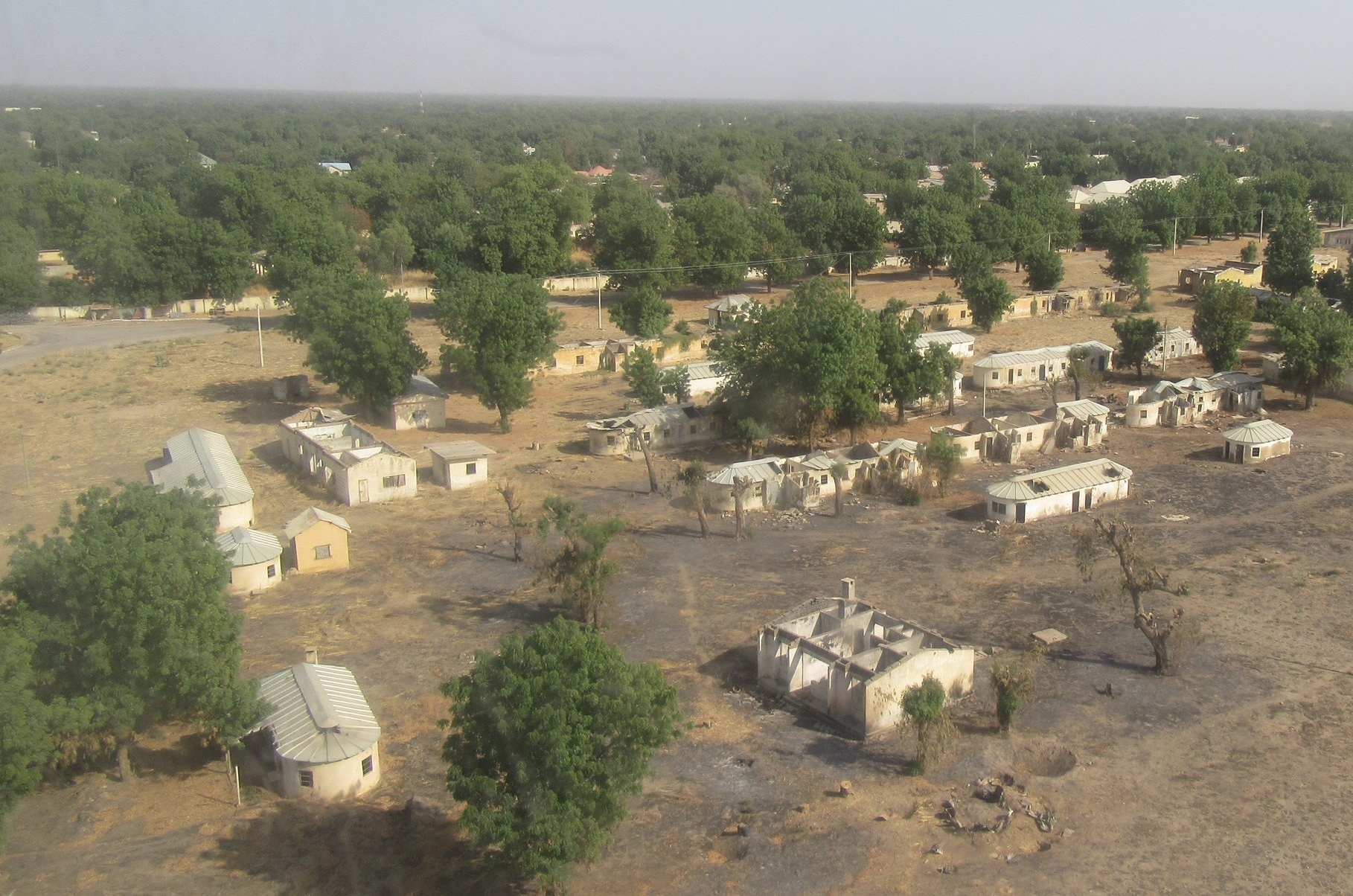Security, Not Politics, Should Determine Returns to Bama

Bama, Nigeria is essentially a ghost town. With the exception of a heavy military presence and reconstruction crews, the town’s streets are barren and littered with debris. Thousands of homes remain destroyed. More than 15,000 internally displaced people (IDPs), mainly from surrounding villages, are confined to the grounds of a former secondary school, with movement in and out of the camp heavily regulated by security forces and government-appointed camp managers.

Once an important business hub and home to more than 250,000 people, Bama’s population largely fled when the militant group Boko Haram took over in 2013. The majority of those who fled have yet to return. Nigerian forces successfully recaptured Bama in 2015, and recently, the city has become the focus of highly publicized reconstruction plans and along with plans for the return of its former residents. But the security situation in surrounding areas remains perilous, and Boko Haram occasionally tries to penetrate the military’s security perimeter around the city. Throughout the northeast, nine years of violence and resource scarcity have resulted in 1.7 million internally displaced Nigerians, with an additional 208,000 seeking refuge in neighboring countries. Overall, 8.5 million Nigerians remain in dire need of humanitarian assistance, according to the United Nations.
“Nine years of violence and resource scarcity have resulted in 1.7 million internally displaced Nigerians.”
The vast majority of IDPs are in Borno State, with several hundred thousand concentrated in Maiduguri, the state’s capital. Ongoing military operations, as well as attacks by Boko Haram, continue to force people to be displaced, sometimes multiple times over. Struggling to find sustainable solutions for the displacement crisis and unable to recapture rural villages, the federal and Borno State governments have announced various plans to return IDPs in Maiduguri to their homes in Bama in the coming months. Previously announced dates for relocation have come and gone, and a great deal of uncertainty remains about when the government might move to relocate people (possibly as early as next month) – even if conditions in Bama are not conducive to returns.
“Here in the camp, we are so hungry. There is not enough food, and we have to sell part of our food to buy firewood or medicine.”
Mustapha, an IDP from Bama
Mustapha, an IDP I met, is the father of four children, including a new baby born only 3 days before I had the opportunity to hear his story. A former resident of Bama town, he fled for safety in 2013 and now lives in a government-managed camp in Maiduguri with his wife and children. “Here in the camp, we are so hungry. There is not enough food, and we have to sell part of our food to buy firewood or medicine,” he explained. When asked if these difficult conditions made him contemplate returning to Bama, he responded: “Bama is the same. There is no work, there is no safety.”
After hearing claims that his house had been rebuilt, Mustapha travelled back to Bama with a military convoy – required for any road travel between Maiduguri and Bama – to see for himself. When he arrived, Mustapha saw that much of the town was still destroyed and that his own home was only partially reconstructed. He said that government announcements on the radio are encouraging people to return, but he does not want to go back yet to “fill their propaganda houses.” A number of IDPs with whom I spoke feel that the government is making a hasty decision in planning for returns.
On the other hand, I met a group of people from Bama living in Maiduguri that are eager to return, saying that they do not want to wait for the government to reconstruct the entire community. They view the government’s promises to allow returns as empty political proclamations to appease them and shared Mustapha’s view that the reconstruction has not progressed as the government claims. Mohammed, an IDP who is keen to return, stated that what he saw was “poor, sub-standard” construction that would not fare well with the upcoming rainy season. Understanding the security concerns and proximity to ongoing fighting, these residents expressed their desire to return to their homes to participate in the reconstruction and boost the local economy.
Meanwhile in Bama, reconstruction is ongoing, but a great deal more must be done. Security is precarious, and the road from Maiduguri to Bama is too often the scene of armed attacks from insurgent groups and improvised explosive devices. During my visit to Bama, a truck transporting aid for the IDP camp in Bama triggered an explosive device less than 20 kilometers outside of the city. Luckily there were no casualties, but the dangers are ever-present. Much like those living in the IDP camp in Bama, returnees would likely face severe restrictions on their movements and be trapped in a garrison-like town.
The troubling plans for returns, conflicting views, and the diversity of intentions of return make it paramount that aid agencies and Nigerian officials make serious and concerted efforts to engage with displaced civilians to understand their intentions and ensure that any returns are voluntary – and that IDPs are given accurate information about the conditions they would return to.
Given that campaigning for the 2019 Nigerian election has already begun and that the government is intent on demonstrating its success in the war against Boko Haram and a return to normalcy, it is expected that pressure for returns will only intensify as politicians posture for victory. However, large scale returns could be disastrous if carried out before the security situation improves and prior to the resumption of basic services. Realities on the ground and security for civilians must take priority over political agendas.
Alexandra Lamarche is a Refugees International advocate focusing on Sub-Saharan Africa and peacekeeping issues. She traveled to Nigeria on a field mission in January 2018.